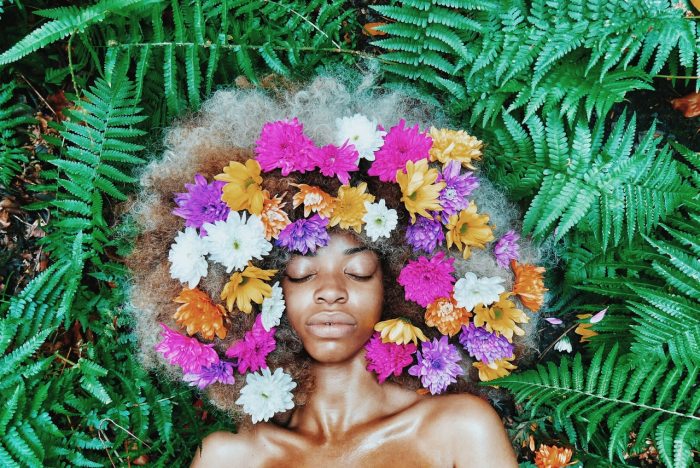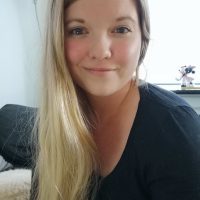“Probably the most visible example of unintended consequences is what happens every time humans try to change the natural ecology of a place.” ~ Margaret J. Wheatley
I’m sitting in my garden and watching the rabbits sprint and jump.
The birds have been up for hours now—their singing is full of life with no worries.
That is the phrase for this garden: worry free.
Joy and peace are all that exist here.
The rabbit and the cat are playing, and the swallows are flying through the sky. How they rise and dive, so skilled and elegant. This garden is full of life, full of colors, sounds, and movements.
I wish that I could stay out here all day and watch the bees as they come to drink water from the bird fountain. How hard they must work to need that much water, yet they are not stressed. Stress only comes when passion is absent, and the bees have found their reason for being.
This garden is my secret paradise. A place where I can let go of all my human worries, and, instead, just enjoy being— like the animals.
Our garden is a bit wild and untamed. It doesn’t fit the normal standards of how a garden should be kept. Maybe I am the garden—never really fitting in, a bit wild and untamed.
“I don’t like formal gardens. I like wild nature. It’s just like the wilderness instinct in me I guess.” ~ Walt Disney
In our human eyes, nature has flaws: weeds, animals that we can’t control, and bugs (whether they are in our houses, crawling in the wrong places outside, or biting us).
Today, I was listening to two people talk about the ants in their garden. The woman asked, “What is the purpose of ants?” It made me curious.
I’m the type of person who would save a bee from drowning, even if there’s a risk of getting stung. If I spot a snail on the road or on the sidewalk, I move it to the side to make sure people won’t crush it or step on it. We have tons of snails in our garden, but I leave them be. I never kill any bugs inside my house—I spend time catching them so I can release them back into the wild. I even do this with spiders—of which I am kind of scared.
So I googled “What is the purpose of ants?” and it turned out that ants are actually pretty important. They clean up dead organisms as scavengers, and some species even kill and eat other insects. They play an important role in spreading flowers by physically moving the seeds and have a huge impact on the quality of the dirt in the garden. Then, of course, they are an important food source for other animals. Ecologists even go as far as to say that we can’t live without ants.
To sum it all up, ants are important. So why are we poisoning them and over-pouring their tunnels with boiling water? The same counts for snails. I hear it every day. People educating me on the many ways I can get rid of insects in my living space and garden, or even the mice that live in our outer walls. Killing is the norm, and I am the weirdo for saying that I don’t mind sharing my space with other beings than my cat and rabbit.
But what if instead of keeping the insects out of our gardens, we create our gardens so they benefit from them living there?
What we see as nature’s flaws aren’t really flaws—they are pure beauty. In our human eyes we all have flaws, and boy, do we like to point these out—point out our own and other’s.
We can learn much about living from watching nature. Just like nature’s flaws are beautiful, so are our own. Until we learn to understand their own beauty, we will never truly be able to see and understand the beauty of nature. Therefore, our behavior toward the outside becomes a reflection of our inner state. Just look at how we treat Earth and each other.
Maybe the true reflection of our inner state can be seen in the ways we keep our garden. A wild garden means that we see the beauty of what others find ugly. We see the beauty of our own flaws.
That said, if our garden is clean and organized without any weeds to spot, or if you see bugs as something that you need to smite, this could be a reflection of not accepting your flaws, of not letting you be the truest, wildest, and freest version of yourself.
“All good things are wild and free.” ~ Henry David Thoreau
To me, we will always be difficult, but animals are easy—they always have been. So if I could choose, I’d stay right here in my garden among the bees and the butterflies. It’s where I feel relaxed.
All lives matter—even the smallest ones. Consequently, we need to stop killing ants and snails. No more smacking flies, spiders, or even wasps—especially when you are invading their space. All beings have a purpose on Earth, and people would know if they saw nature in a bigger perspective.
Try, and you will understand. Do you see how everything is here for a reason? How everything fits together perfectly?
Accept your flaws as beautiful. Be the wildflower.
“Be the ‘Wild Flower’ in the harsh-dramatic-made up world.
No one to fear.
No one to please.
No one to compete.
And no one to replace.
Bloom, spread, and die.
Touched by the breeze let your soul fly.” ~ Rashmi Saha
~









Read 1 comment and reply